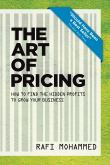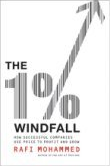Should the NFL Raise Superbowl Ticket Prices?
Here’s an interesting pricing anomaly: the face value of a ticket to Sunday’s Superbowl is $700 - $900, but officials for ticket scalper (reseller) StubHub claim that the average resale price for a Superbowl ticket is $4,300. Given this price disparity, do you think the NFL should raise its prices?
My bet is that the NFL is in no hurry to raise ticket prices because going to the Superbowl is akin to attending an exclusive party that most of us simply aren’t invited to. The truth is that only 1% of Superbowl tickets are offered to the public via lottery. To buy these tickets, you have to send in a card indicating interest by June 1 of the previous year. Economist Alan Krueger reports that in 2001, over 36,000 people vied for 500 pairs of tickets in the lottery. So where do the rest of the tickets go? It’s payback time: The NFL gets its cut (25.2% of tickets), each team gets 17.5%, host committee (5%), and the remaining 29 NFL teams split the final 34.8%. And who actually sits in these seats? Retired sports heros, sponsors (access to tickets makes paying $2.7 million for a 30 second ad more bearable), season ticket holders, management, and the well-connected. Maximizing profit is not the primary motive in setting ticket prices.
In a fascinating 2001 survey, Alan Krueger tracked down winners of the Superbowl ticket lottery and asked a simple question: if they hadn’t won the lottery, would they pay $3,000 (average 2001 price of a scalped Superbowl ticket) for their ticket. 90+% of respondents in essence responded “are you out of your mind, of course not.”
What’s interesting is that these lottery winners were in fact paying $3,000 a ticket - they could have resold their ticket for that amount. This type of pricing anomaly has long puzzled economists: If I think it’s crazy to pay $3,000 for a ticket, shouldn’t I be willing to sell my ticket for that amount?
So what’s going on here? I don’t think economists are thinking about this correctly. Here’s my new-to-the-world hypothesis: when asked if they would pay $3,000 for a ticket, lottery winners evaluated how this expenditure would affect their current lifestyle (e.g., skimp on necessities or not make luxury purchases) and decided it’s not worth it.
So why not sell the ticket for $3,000? The decision is different. Because they won the lottery, these consumers in essence have an extra $3,000 in their budget. So the dilemma they face really is: “What should I do with this extra money in my budget? These lottery winners opted to spend their $3,000 windfall on the Superbowl over other discretionary luxury expenditures (vacation, fancy electronics, etc.).
I recently had a similar experience. Through a bit of luck, I was seated about 30 feet away from Bruce Springsteen at his Boston concert. As Bruce swung into one of his greatest hits and the crowd went berserk – instead of enjoying the moment like my fellow fans were – I started wondering how much I valued this experience. My answer: it would have taken $1,500 for me to sell my prime ticket but if asked to pay that amount out of my pocket, without a doubt I would have replied “Are you crazy?”





I wonder what the locations are on those lottery tickets or if they are spread around randomly. It is a private party which you are invited to watch on TV. If I got a pair of tickets for it, I honestly don't think I'd go. Just too much hassle unless you've got an in on a room, private plane in etc, etc. This is and event that is better on TV.